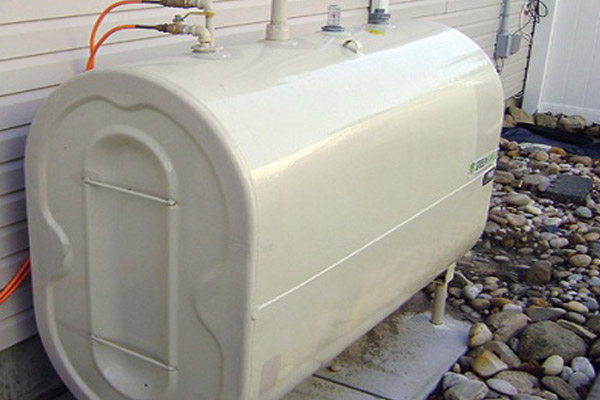What Size Boiler Do I Need?

A house won’t feel like a home until you feel comfortable in it. During the cold season, you need a dependable heating system to get you through the winter. Just remember that there are no absolutes when it comes to boiler selection. You can’t just point at the biggest unit and say you’re done. No single metric will guarantee suitability. Consider multiple factors before your heating installation and seek the help of an HVAC specialist to make a smart pick. In this article, we discuss what goes into choosing the right boiler size and type.
What Size Boiler Do I Need?
Contents
Picking a boiler cannot be a random selection. You must figure out what you need and find a unit that matches it. Be diligent about the search. Boilers can last for over a decade (and much more) with proper care. If you are going to use the heating system for this long, you might as well ensure excellent compatibility, reliable performance, and supreme energy efficiency. Choosing something that is way off the mark can lead to frustration, headaches, and costly problems. If you want to avoid common mistakes, consult a local HVAC contractor for guidance.
The Importance of Proper Boiler Size Selection

Boiler size is not about physical dimensions. Don’t worry about the length, width, and height of the units for now. Focus on the energy output expressed in kilowatts. It is a measure of the boiler’s ability to generate heat. You must select the proper size for your home — not too high or too low. If you get it right, you will minimize wasted energy. You won’t have to pay for heat that you don’t need.
Factors that Impact Boiler Size
A house that requires a lot of heat will require a large boiler. You must get an adequate size to stay warm. HVAC professionals can perform calculations to generate a number that you can aim for. Experienced technicians can also make quick estimates based on experience. Tell them about the number of radiators, the property size, the layout, the household hot water demand, and the fuel type. These are useful parameters for equipment selection. Let’s learn about them one by one.
Related Article: How Does Oil Heating System Work?
1. Number of Radiators

Did you count the radiators in your property? Most family homes have four bedrooms and ten radiators. In this setup, a small boiler rated at 24 kilowatts should be sufficient. If you have a smaller house with one to two bedrooms, go lower. If you have a larger house for an extended family, you may have to exceed 35 kilowatts. With twenty radiators, HVAC contractors may recommend a boiler rated at up to 42 kilowatts.
2. Property Size
How big is your home? A massive structure has a larger volume of air inside compared to a tiny house. It requires a boiler that can produce more heat to influence the indoor temperature. If you pick an undersized unit, you may feel discomfort during the peak of winter.
3. Heat Loss
Heating engineers developed a more accurate method of determining the perfect boiler size for each home. They compute the heat loss of the structure instead of relying on the house dimensions. This novel approach includes multiple factors in the equation, such as the number of windows and radiators. They also consider the floor area, insulation type, and other contributing factors to heat loss. The result will provide you with the necessary boiler size to counter the coldest day of the year.
4. Fuel Type

What fuel does your heating system use? Some homes are connected to the natural gas pipeline. Others rely on a heating oil or liquefied petroleum gas tank in their backyard. Fuel can affect system efficiency. Modern boilers may even generate heat using renewable energy sources. If you are conscious of your environmental impact, find a system with a high AFUE rating.
5. Bathrooms and Showers
A powerful boiler will also help you maintain even water pressure without wasting energy. When thinking of property size, you should pay attention to the number of bathrooms since these will require a lot of hot water. How many people live in the house? How frequently do they use the baths and showers?
Types of Boilers for Homes
Boiler size isn’t everything. You need to get the right type of boiler for your home. There are three options, with each having its own pros and cons. The main considerations this time are the boiler type currently installed and the amount of space you have available for the new unit. Read on for a brief discussion:
1. Combi Boilers
Combination boilers will only heat water when it is necessary. Don’t worry because you won’t have to wait long for the hot liquid to come out. Since it does not hot store water, you don’t have to allot space for a tank — perfect for small homes. The name comes from the mixture of the water heater and a central boiler in the design. The downside is that it can’t heat space and water at the same time. If you need multiple outlets for hot water, choose something else.
Related Article: Top 10 Boiler Problems Homeowners Experience
2. Conventional Boilers
These are the traditional boilers. They have two storage tanks for hot and cold water. Fuel combustion allows them to increase the temperature of the water. A pump moves the hot water to a dedicated tank to serve you instantly whenever you need it. Open the tap or the shower to get the warm liquid. Conventional boilers are common in old houses. If you live in such a property, it makes sense to replace the existing boiler with the same type.
3. System Boilers
If you have a large family, you probably need a lot of hot water every day. A system boiler can meet your needs. It takes water from the mains and heats it in a storage cylinder. Getting the liquid directly from the supply lines, it eliminates the need for a separate cold-water tank. Unlike combi boilers, it can provide hot water to multiple outlets simultaneously.
The Consequences of an Oversized Boiler
A boiler that is too big will turn on and off in a fast loop. This phenomenon, called short cycling, happens because the space heats up quicker than it should. It forces the unit to shut down, only to turn on again because the heat immediately dissipates. The radiators can overheat, and the rest of the components can wear out prematurely. Expect a shorter boiler lifespan.
The Consequences of an Undersized Boiler
Meanwhile, a boiler that is too small can take forever to heat up the home. You may not get the immediate relief you want after coming home from work. On most days, it will eventually reach the desired temperature. However, it can prove to be inadequate during extremely cold winter days. You may also run out of hot water rapidly if two or more people are using the taps.
Related Article:What To Look For In A New Oil Boiler For Your Home
Conclusion
Boiler selection is a technical matter. Homeowners who take the time to understand the process are more likely to be satisfied with their choice. If you want to prevent costly errors, consult a competent HVAC contractor and perform heat loss calculations.
Call McAllister Energy For Your Home Heating Needs
 McAllister Energy offers superior heating and cooling services for all homeowners in our service area. We hire well-trained technicians who are licensed, bonded, and insured to give you the best services possible. Our contractors perform all HVAC services, including repairs, installations, routine maintenance, and replacements. In addition, all our technicians are familiar with all makes and models of heating and cooling systems. As a result, you can get the peace of mind that all services are performed correctly in the first place.
McAllister Energy offers superior heating and cooling services for all homeowners in our service area. We hire well-trained technicians who are licensed, bonded, and insured to give you the best services possible. Our contractors perform all HVAC services, including repairs, installations, routine maintenance, and replacements. In addition, all our technicians are familiar with all makes and models of heating and cooling systems. As a result, you can get the peace of mind that all services are performed correctly in the first place.
McAllister Energy offers competitive pricing with all homeowners in mind, and we make it our mission to provide affordable heating and cooling systems for all families. Our technicians recommend energy-efficient systems and offer reasonable upfront costs if you need a complete replacement. We want all families to stay comfortable all year round and guarantee all our services. Contact McAllister Energy to schedule an appointment or get a service quote.
You can click here to contact us now or call us at (856) 665-4545 to find out more!